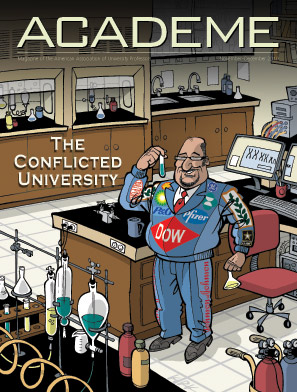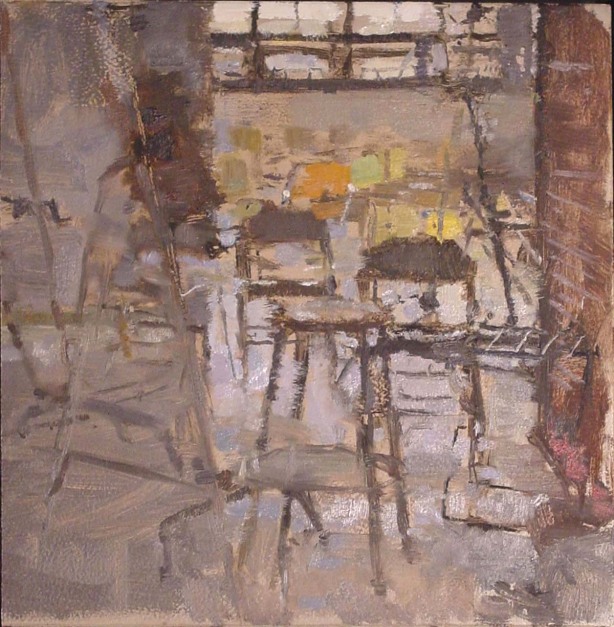
...confronting precarity in all its social, labor and economic manifestations
Thursday, November 25, 2010
Tuesday, November 23, 2010
NEH summer programs for Community College faculty
NEH Landmarks of American History and Culture: Workshops for Community College Faculty. Application Deadline: March 1, 2011
NEH Landmarks of American History and Culture Workshops are tuition-free summer programs for community college faculty. These one-week projects take place at sites of historical or cultural significance across the nation. Participants receive stipends to help cover travel and living expenses.
Thursday, November 18, 2010
AAUP Joins Week of Action for Higher Education
The university is conflicted: nor is anyone ~ students, staff, faculty, techs. researchers, managers ~ in it immune. Does it have to be an either/or when it comes to aligning ourselves with either the suits at conferences or bullhorns in the streets. Wherever individual sympathies lie, we must ~ in my personal opinion ~ listen to / work with both (however long a spoon that may call for), cannot ignore either.
The 2nd Annual SEIU Forum on Part-Time Faculty Unions is this coming Saturday, Nov 19, ~ D.C. in case you're in the neighborhood. AAUP Shared Governance Conference (with workshops) was last weekend, Nov 12-14. Reports in my RSS reader await an ever dwindling attention span. In today's mail, a reminder from the "National Center for the Study of Collective Bargaining in Higher Education and the Professions" about its 38th annual conference, April 10-12, 2011. If there is a more ungainly acronym than NCSCBHEP, I don't want to know about it.

Wednesday, November 17, 2010
Oct. 17th Global Day of Action for Education

Friday, November 12, 2010
Rereading the University Classics, Part 3

John Henry Newman's 1852 collection of lectures and essays, The Idea of a University, goes to great length to defend the inclusion of theology in the curriculum of the then-new Dublin unversity. Newman, who had converted to Roman Catholicism from Anglicanism, was the driving force behind the university's founding and its first rector. For American universities, teaching theology was never an option, and thus many of Newman's efforts seem to evaporate instantly. Yet the way he advocates the inclusion of religious instruction contains ideas that are applicable to today's curricular debates."
Thursday, November 11, 2010
NFM Newsletter, Issue #4, now out
- On adding more voices: President's message
- Our collective voice will be heard: Tracy Donhardt, Board member, Newsletter Editor
- Noteworthy adjunct activism: Board member Steve Street
- Me and UC: unemployment filing narratives
- Gaining support and benefits at UI filing party: Peter Brown
- Part II: Non-tenure track researchers: Paul Erlich
- How to file a Freedom of Information Act request
- Announcements
- (Passing the Mortarboard)
SEIU 2nd Annual Forum on Part-Time Faculty Unions
Nov 19, 9 am-1 pm at SEIU; 1800 Massachusetts Ave. NW, Click here for map
Click here for an event flyer; email mcleera@seiu500.org or call 301-740-7122 to RSVP and for more information.
Wednesday, November 10, 2010
Editing Update & Call for Submissions
- Academic Freedom
- Women and Contingency
- Evaluation Practices
- Online Teaching Related Issues
- Alternatives to Tenure
- Proposal already submitted: first drafts, January 15, 2010
- Not submitted? Last chance for proposals / abstracts is January 15,2010
- Second drafts, March 15, 2010
- Final drafts, June 15, 2010
Reading Room: Steve' Street's columns
Here's what I wrote introducing the first Reading Room post:
Remember the reading tradition in US union history? Reading Rooms in hiring halls. Samuel Gompers' cigar rollers voting to have a member on the clock read great books to them as they worked. Why not an online reading room right hereThe call for suggestions still stands. Who and what are your choices? Cary Nelson, Keith Hoeller, Marc Bosquet.... all obvious choices. Let's include the less obvious as well. Accompanying links always appreciated. Post as comment or email me at vanessa.vaile@newfacultymajority.info
Thanks to NFM Board Member and Research Chair, Ross Borden, for list and heads up. Let's bring back the Reading Room and post more link lists. Suggestions welcome...
Steve Street: Select Bibliography 2008-2010
- “The Fog” (12 August 2010), Inside Higher Ed
- "Wouldn't a New Progressive Era Require Faculty Equity?" (Fall 2009), Thought & Action (see Table of Contents under Special Focus). In pdf format
- “Sticks and Stones, or Titles and Truth?" (23 Sept 2009), Chronicle of Higher Education
- "The Silence of the Grads" (5 June 2009), Chronicle of Higher Education
- "Let's Talk Equity — Later" (14 Jan 2009), Chronicle of Higher Education:
- "Mad About Numbers" (11 Dec 2008), Chronicle of Higher Education
- "Don't Be Kind to Adjuncts" (24 Oct 2008), Chronicle of Higher Education h
- "Don't Pit Tenure against Contingent Faculty Rights" (May-June 2008) Academe
- " A Cheeky Plea for Faculty Unity" (14 May 2008), Part-Time Thoughts, Adjunct Nation
Tuesday, November 9, 2010
What Happens if the Charter School Companies Win?
Among the arguments made by advocates for charter schools is that they expand consumer choice and that given the state of education in many inner-city minority communities experimentation with alternatives can only help the situation. As buzz words, choice and experimentation always sound good. After all, we know about the disappointing performance of many students in inner-city schools under the current educational system so why not try something else?
Unfortunately, we already know what will happen if private-for-profit charter school companies take over K-12 education in the United States because for-profit proprietary companies have already successfully invaded what used to be called "higher education." These companies have defrauded the government, left families deep in un-repayable debt, and cheated students out of an education.
Higher ed and K-12 are connected ~ what goes down in one, affects the other; "innovations," policies, programs, etc. implemented in one domain will eventually come home to roost in the other, trickle up or trickle down. It behooves each to trend watch the other.
Monday, November 8, 2010
The Future of Work
this bit of research on the Gartner site; while it dates back to August has some interesting speculation about the Future of Work.So much of this applies as much to teaching and learning possibilities.
“People will swarm more often and work solo less. They’ll work with others with whom they have few links, and teams will include people outside the control of the organization,”
“In addition, simulation, visualization and unification technologies, working across yottabytes of data per second, will demand an emphasis on new perceptual skills.”
- Tom Austin, Vice President and Gartner Fellow
Gartner points out that the world of work will probably witness ten major changes in the next ten years. Interesting in that it will change how learning happens in the workplace as well. The eLearning industry will need to account for the coming change and have a strategy in place to deal with the changes.
"De-routinization" of work (or teaching) could return to autonomy to teachers, already implied in Downes. Work swarms and teaming fit in at PLENK 2010 but seem less likely candidates for the entrenched academic mind.
And on down the list. Just because it could happen doesn't mean it will though.
Friday, November 5, 2010
Class dismissed
In the brave new world of the cost-cutting corporate university, students can stay in their pajamas and earn course credits. Right in their dorm rooms, by viewing on-line courses.
It may not be learning. Or learning much. But students are able to accumulate course credits, and therefore consume what the new corporate university is supplying.
The New York Times reports that universities are teaching thousands of students who never have to step foot in a classroom to earn course credits in Economics, Spanish, Psychology, and so on. And they're not the usual distance-learning students, students who for some time have been offered the opportunity to purchase the education commodity without setting foot on a college or university campus. No, these are on-campus students who, because of budget-cuts, are being forced to purchase course credits by taking-on-line courses.
A single professor, sitting in an office (at home or on campus) can "teach" thousands of students, many more than can fit in a lecture hall, via a relatively simple computer hook-up. Students stay in their rooms, without ever meeting the professor or other students in the course, and attempt to learn the material via on-line lectures and exams.
On-line education represents a fundamental change both in the labor process (it is a form of speed-up) and in the commodity being produced (since one of the distinctive features of consuming the commodity higher education is that students have to work—alone, with the professor, and with other students—to realize the use-value of learning).
It is the future of higher education—and the end of the university as we have known it.
Tuesday, November 2, 2010
explaining the profession

I said that to some degree we deserve it; what I did not say, you’ll notice, is that it’s true. Untrue, but we deserve it? Well, yes: I think that college professors as a group, and English professors as a high-visibility (and high-risibility) subset, have done a terrible job of explaining just what it is that we do, and actively countering the most pernicious caricatures of our work that circulate in the larger culture."
Monday, November 1, 2010
Organizing for Power, Organizing for Change

"I am so glad you found this website, Organizing for Power, Organizing for Change. It’s full of information, resources, photos, stories and more from past movements, campaigns and actions. I hope it will be useful to you as an organizer, student, activist, journalist or researcher.
This website is based on the notes I use for training. They reflect lessons from 35 years of organizing. I feel very privileged for all the opportunities I’ve had to learn. Weaving together work within and between the student, environmental, labor, immigrant, anti-war and global justice grassroots movements has made me a very wealthy woman (not financially unfortunately!).
These training notes are now divided up onto tabs corresponding to what I call the “building blocks” for change."
BYOP: CAW Survey video on ExtraNormal
Video heads up courtesy of AFTFACE. Please share ~ re-blog, forward, backlink, bookmark, review, vote for it on BuzzFlash, like and share on Facebook, and so on. Do you need a tutorial? That can be arranged.



